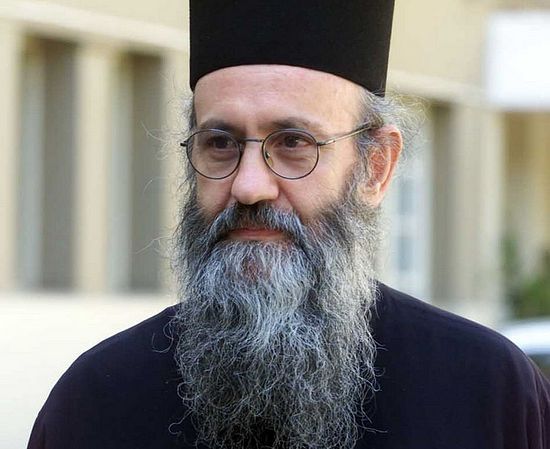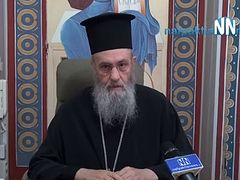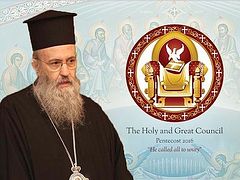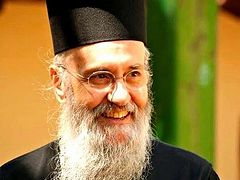Athens, July 12, 2016
One of the participants of the Orthodox Church council held in June in Crete, the famous theologian and Church writer Metropolitan Hierotheos (Vlachos) of Nafpaktos, has issued a twenty-page report in which he comments on the circumstances surrounding “the Holy and Great Council.” Specifically, the metropolitan has explained why he refused to sign the document entitled “Relations of the Orthodox Church with the Rest of the Christian World.” The Agionoros.ru website has published the major points of his report in Russian, with excerpts of his statements:
1. Metropolitan Hierotheos believes that it is still too early to determine the name by which the council in Crete will go down in history. Its status and authority will depend on whether the fullness of the Orthodox Church recognizes it or not.
The main judges of councils are those whose minds have been illumined by the light of Christ. “A council should express the Church life and consciousness—that is, the experience and theology of the Holy Fathers, who are the true judges of the orthodoxy of one or another council. Let us recall the words of the Apostle Paul: Do ye not know that the saints shall judge the world? (1 Cor. 6:2).”
2. In Metropolitan Hierotheos’ view, the text of the document, “Relations of the Orthodox Church with the Rest of the Christian World,” was imperfect and required improvement. “Signing of this document will provoke various problems in the future.”
This document does not define “who is and who is not a part of the Orthodox Church, what those who broke away from the One, Holy, Catholic and Apostolic Church are like, and it does not draw a distinct line between the Orthodox Church and heresy”.
3. The Metropolitan of Nafpaktos observed elements of relativism at the council. Specifically, the so-called branch theory was proposed by some at the council. An opinion was expressed that, historically, Christianity allegedly split and the church was torn (into separate groups), “just as a priest’s cassock tears,” (!) and now all are striving for its unity. Another opinion was expressed that all Christians have a particular distinguishing characteristic—valid baptism (so-called “baptism theology”).
4. The hierarch has spoken out against the decision to authorize local Orthodox churches to exercise economy in regard to fasts and marriage. With this decision upheld, temporal relaxation of restrictions eventually could be legalized, potentially leading to the loss of the existing uniformity of Orthodox asceticism, morals, and canons.
5. In the final part of his article, Metropolitan Hierotheos criticized statements made at the Crete council indicating that “its decisions will be mandatory for all autocephalous churches.” Unlike the Ecumenical Councils, which instituted excommunication for those who did not accept their decrees, the Crete council has no authority to impose its decisions on the local Orthodox churches that declined to take part in this meeting.





